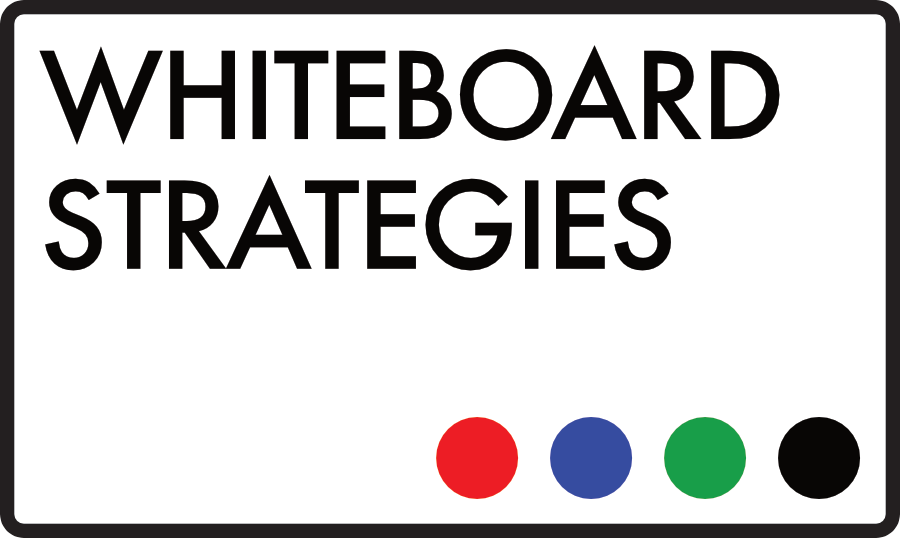The world, your job role and your marketplace are changing. We talk like this all the time in sales pitches right? Trying to highlight some tension between the capabilities of our customer and their more heavily-armed competition, or between their product blind-spots and their end-user demands—“The world is changing, you need X, Y or Z to keep up”. But I’m not mentioning all this change to try to leverage some deep, nameless worry that keeps you up at night.
I’m mentioning it because it makes things difficult if you’re not properly equipped for it.
The modern corporate landscape is constantly shifting—and that makes effective leadership difficult. How can you make informed decisions when not just the goalposts but the whole field of play keeps being moved? How can you operate and lead effectively when your marketplace is fluid and constantly evolving?
The key is being able to anticipate the shifts. Unfortunately, that’s an art rather than a science—a lot of good leaders have lost themselves to the CRM matrix in recent years, endlessly picking over minute details, trying to spot patterns and behavioural shifts metrically rather than instinctively. The answer to your problems isn’t in your CRM.
The key is to be able to feel how the market is changing, or where product development or sales enablement or any number of other things needs to be heading. It sounds like Jedi rubbish, right?
But all it really needs is two things. The first is a shift in mindset. All too often, leaders think of themselves as teachers—they have to in order to do their jobs properly, to disseminate information effectively and so on. But leaders sometimes need to think of themselves as pupils in order to really master their role. Leaders need to make a commitment to constant improvement, reinvention of themselves and their teams, an ongoing review of their own market relevance.
Those of you who are in high enough positions will already know this. Being humble enough to know how much you don’t know is part of what gets you to those lofty heights. But the young and hungry tend to make the same old mistakes—a quick MBA and they think they’re set for life. As the great thinker and writer Jiddu Krishnamurti put it, “there is no end to education. It is not that you read a book, pass an examination, and finish with education. The whole of life, from the moment you are born to the moment you die, is a process of learning”.
Constantly opening yourself up to new knowledge, new best practices, new ways of doing things… that’s how you become a great leader. The broader you’re reading, discussing and learning the better, since the more you know the broader the picture you can see. I once knew a guy who managed a factory that made one tiny part for medical microscopes. He did it well enough, but eventually lost the work to a company who knew more about the finished microscope and found a way of creating that component that saved time and money in the broader manufacturing process.
The broader your scope of knowledge, the more it will benefit your specific job role. I was reading a Harvard Business Review piece this week that mentioned behavioural psychologist Harold Gardner’s idea of ‘searchlight intelligence’—a way of thinking that encourages seeing links, patterns and correlations between seemingly unrelated sets of information. The more you know, the more connections you can make. That’s how you understand an impossible, constantly shifting marketplace.
If you’ve got your head down, just making your component and not thinking any further than that, then you’ll lose the contract. If you understand where your component sits in the overall product, where that product sits in its marketplace, what its competitors are and how they’re different, what the end-user makes of the product and how it can be improved… then you’re getting somewhere. If you read the article about some slight distortion caused by convex lenses in cameras in a magazine at the doctors, and then start thinking about how even minute lens distortion might be affecting that medical microscope you make a tiny part for… Well. Who knows where that will end up?
Winston Churchill once said “I am always ready to learn, although I do not always like to be taught”. That’s not uncommon, especially when you’re dealing with highly skilled, highly intelligent and incredibly busy people. Whether you’re learning yourself, or passing on some of that knowledge, always remember that there are ways of teaching and ways of learning that stick. To quote another great statesman, Benjamin Franklin: “Tell me and I forget. Teach me and I remember. Involve me and I learn.”
Think about how much you learn, what you learn, how open you are to new knowledge and ideas from outside your immediate field. Broaden yourself, be hungry for knowledge, even if it seems unrelated to your work… you never know when it might come in useful.

Recent Comments